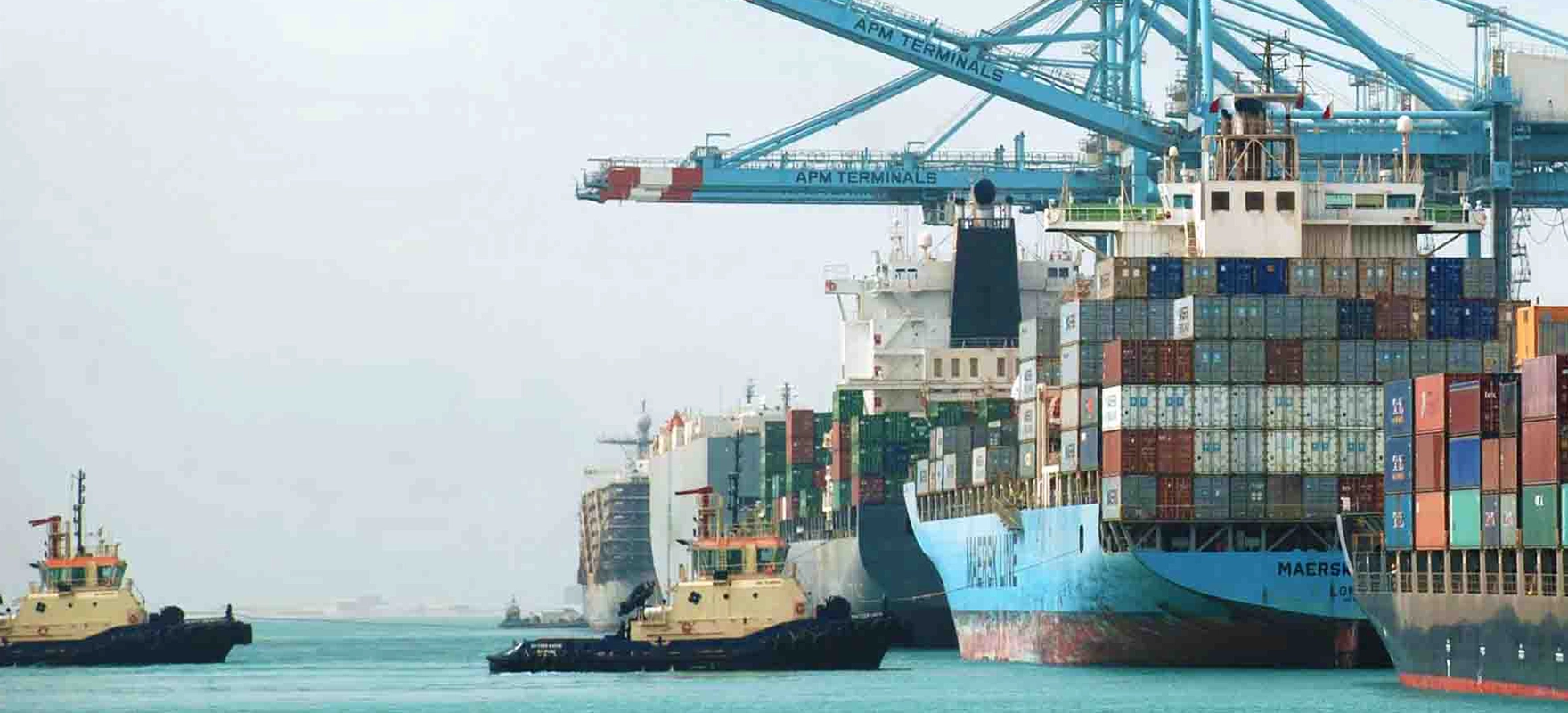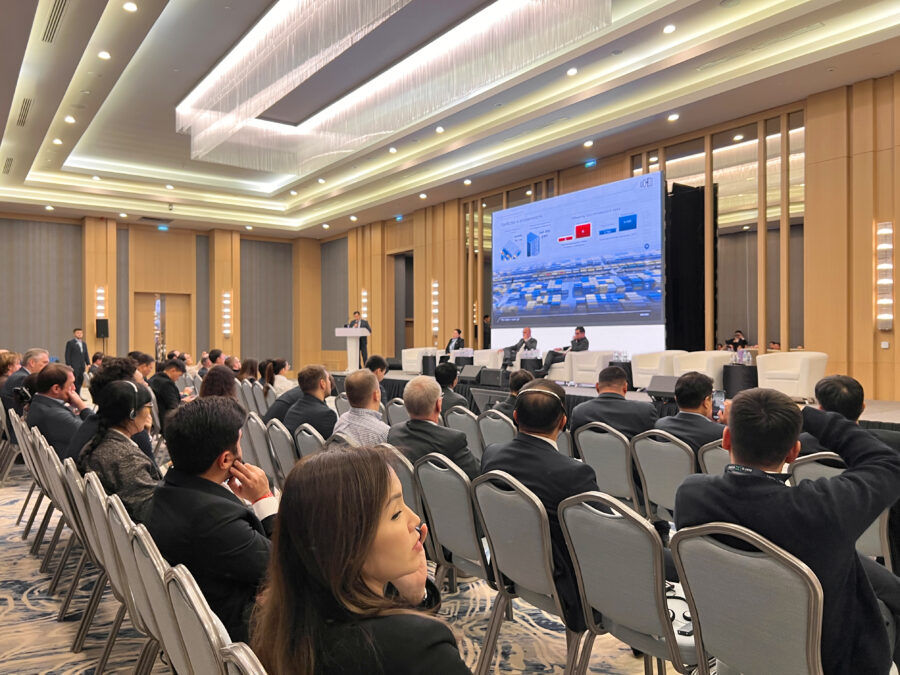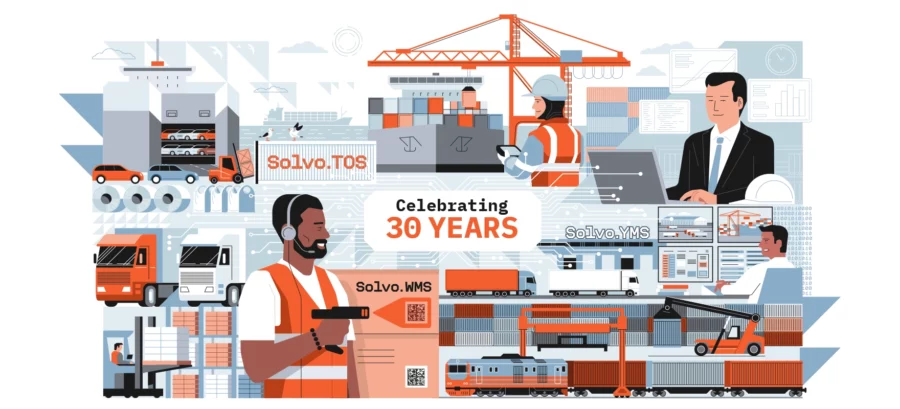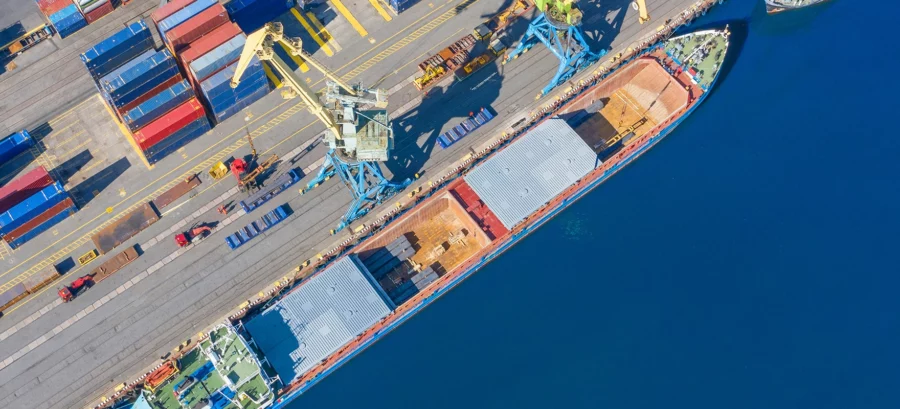How can cargo terminals automate the handling of various cargo types and sizes?
How can internal processes be unified within a single digital ecosystem—while ensuring seamless communication with external logistics partners? These were the key questions addressed at the 18th Trans Middle East Exhibition and Conference, where Solvo presented its flagship terminal operating system, Solvo.TOS.
A Flexible System to Fit Every Business
At the exhibition, the Solvo team demonstrated how Solvo.TOS adapts to the specific business needs of different terminals. Visitors were particularly impressed by the system’s modular architecture and customization options. Like assembling a puzzle, each terminal can configure Solvo.TOS to match its operational workflows—whether in ports, inland terminals, or multimodal logistics hubs.
High-Level Recognition and Industry Engagement
Among the honored guests of the event was His Excellency Shaikh Ahmed Bin Isa Al Khalifa, Undersecretary for Port & Maritime Affairs at Bahrain’s Ministry of Transportation and Telecommunications. He visited the Solvo booth during the exhibition’s opening ceremony and highlighted the strategic value of IT solutions like Solvo.TOS for the future of port management in the region.
Supporting a Wide Range of Cargo Types
During the conference program, the Solvo expert gave a presentation highlighting the system’s support for a wide spectrum of cargo types:
- Containers
- Bulk materials
- Bagged and boxed goods
- Construction materials
- Timber and lumber
- Metals (ferrous and non-ferrous)
- Perishables and food
- Paper and pulp
- Ro-Ro and equipment
A case study from the Port of Antwerp illustrated how Solvo.TOS can be tailored to the specific handling needs of any terminal.
Solvo.SCE: A Single Platform for Terminal and Warehouse Operations
Beyond port operations, the Middle Eastern logistics community also showed interest in Solvo.WMS for warehouse automation and Solvo.Yard for yard management. These systems are part of the unified Solvo.SCE platform, which enables logistics companies to manage all their facilities—terminals, warehouses, and yards—within a single, scalable digital environment.
Connecting Global Supply Chains
The 18th Trans Middle East gathered over 500 delegates from more than 30 countries, providing a valuable platform for industry dialogue and innovation. Solvo thanks all visitors for their interest and looks forward to continued collaboration in the region.






